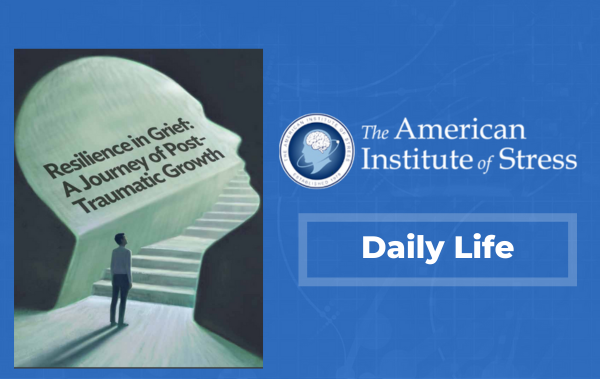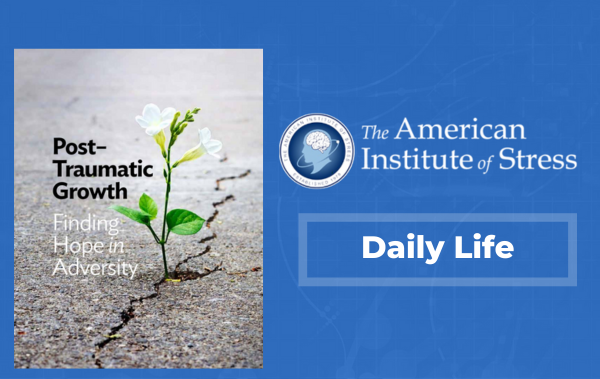Written by Tatiana Bido for NewBeauty; full article available here
The world we live in seems rife with unavoidable stressors. Urgent “read me now” messages come flying through our smartphones on the hour. News outlets reporting on the latest tragedy run on a constant loop, the car-pool lane is always backed up, work deadlines seem never-ending, the train never runs on time, and the laundry doesn’t fold itself—and that’s just the morning routine. Stress is inevitable. Whether it’s daily stressors chipping away at us or a big, life-changing experience that rocks us to our core, stress isn’t just giving us agita and making us irritable. This natural physical and mental reaction can wreak havoc on our faces and bodies, aging us faster than a lifetime of smoking and bad eating habits. Here, we tap the experts to help us minimize the damage, and as Frankie says, RELAX.
What’s Happening to My Body?
According to Heidi Hanna, PhD, Fellow of the American Institute of Stress, although we may feel like we’re juggling more than our parents or grandparents did, that’s not exactly the case. “Most people today are more physically and financially secure than in generations past,” she says, “but we have become bombarded with overstimulating noise, to the point that our nervous systems have become much more sensitive. At the same time, technological advancements have put greater demands on our time and energy. Because we aren’t prioritizing our personal recharge and stress-mastery techniques, the consequences are greater than ever.”
When we get super stressed, our body takes a major hit. It responds by releasing hormones that increase breathing and heart rates, and our muscles get tighter and ready to respond to the perceived danger. “Stress hormones are designed to help you survive a life-threatening situation,” says New York dermatologist Doris Day, MD. “Your blood pressure and energy levels go up and your body turns off functions that are not essential to your survival, like digestion and reproduction. Because your body is on high alert, you think more clearly, and learning and memory are enhanced. That’s very useful if you’re dealing with a true life-threatening situation, but in today’s world, we often react to minor situations with that same level of stress response.” It’s times when stress piles on that our physiological response doesn’t turn off and stress levels stay elevated much longer than necessary. During these bouts, physical symptoms begin to manifest from the inside out.

Women experience stress differently than men, and often put self-care on the back burner, according to Dr. Hanna
For women, dealing with stress can lead to even more stress. “The primary reactions of the male brain pattern are ‘fight or flight,” says Dr. Hanna, “while the female brain pattern is more hardwired to ‘tend and befriend.’ The combination of stress hormones with elevated estrogen and oxytocin can cause us to react by wanting to take care of others or nurture meaningful relationships.” Dr. Hanna says that when we put self-care on the back burner and hear well-meant advice like “hit the gym” or “fix the problem,” it can stress us even more.
Here’s How Things Get Ugly
Aside from the onset of “resting bitch face,” stress can also turn us into a veritable wildebeest. Here’s how chronic stress can do a number on our good looks.
Skin
“Constant worry can trigger the same stress response as a major threat—the release of adrenalin and other stress hormones— which over time can negatively impact our skin,” says Dr. Day. “Studies show that long-term stress suppresses the immune system in all organs, including our skin, making us more susceptible to infections and even disrupting menstrual cycles, which can lead to hormonal breakouts.” Miami dermatologist Dr. Janice Lima-Maribona says cortisol, the primary stress hormone, is the main culprit. “Normally, cortisol levels oscillate by our internal circadian clock, with peak levels in the morning and low points happening around midnight. When we’re stressed, our cortisol levels are disrupted, which can cause acne and exacerbate conditions like eczema, psoriasis, rosacea and atopic dermatitis.” Although we may live in a skin-care obsessed culture, according to New York dermatologist Julie Russak, MD, our body hasn’t caught on yet: “Our skin, hair and nails are of the lowest importance to our survival,” she says. “So, at times of stress, valuable vitamins and minerals are prioritized for our body’s vital metabolic processes and the production of stress hormones. Skin is an external barometer of what is happening internally, and we often see dull skin at times of fatigue and stress.” A dull complexion is the least of our worries—we can also expect more lines and wrinkles, too. “Consistently elevated levels of cortisol is catabolic to the body, meaning we are breaking down and failing to repair tissues, which leads to decreased collagen and elastin production,” adds Dr. Russak. “With chronic stress we also ‘tire out’ our adrenal glands and deplete their ability to react properly to stress.”
Hair

Stress can affect every part of your body, including your hair.
Yes, your job can make your hair fall out! Prolonged periods of high stress can lead to a disturbance of the hair cycle. Stress can cause telogen effluvium, a condition that occurs when a large amount of hair follicles are pushed into the resting phase. The affected hairs may fall out or end up left behind in a hair brush. Alopecia areata, which happens when the body’s immune system attacks the hair follicles causing hair loss, can also be brought on by the body’s reaction to stress. “A patient of mine was losing hair after a close family member was diagnosed with cancer,” says Dr. Lima-Maribona. “It was not either of these two issues, but I learned she was picking at her scalp. The urge to pull hair out of the scalp is called trichotillomania, and for that, I recommended she also seek psychiatric help.”
Nails
Cortisol has been shown to cause a loss of biotin in the body, and the combination of adrenal fatigue (which reduces how our body absorbs essential nutrients) and high stress can weaken nails. Healthy nails require vitamins and minerals like protein, biotin, silica, magnesium, zinc, and iron. “Stress makes it harder for our bodies to absorb the nutrients they need, so nail ridging, pitting, and shredding are all side effects,” says Dr. Lima-Maribona. “People coping with stress tend to abuse their nails with repetitive rubbing or biting, which also causes more damage to the nail bed.”
Teeth
One way our body deals with stress can start in our mouths. “Stress can cause us to clench and grind our teeth, resulting in joint and muscle pain called temporomandibular disorders, or TMD,” says New York cosmetic dentist Irene Grafman, DDS. “This results in headaches, neck and back aches, and worn-down, unattractive-looking teeth. Over time, chronic TMD can also create more than just aesthetic issues. As teeth are ground down, it can result in the tongue or oral tissue collapsing and closing off the body’s airway, leading to problems like sleep apnea.”
Body
“We are more likely to overeat at times of stress, reaching for foods high in carbohydrates and sugars that release dopamine, a neurotransmitter that makes us feel good. And even just one night of less than five hours of sleep can lead to the consumption of an extra 300 calories,” says holistic nutritionist Jennifer Hanway. “Studies have shown that women with high cortisol levels tend to store more visceral fat, the ‘deep’ fat stored further underneath the skin and around the organs linked to metabolic diseases and increased inflammation, than those with lower levels.”
Coping Mechanisms
Whether it’s meditation or microneedling, turning off the stress faucet and undoing the damage that’s been done are steps one and two if getting our bodies back on track.
According to Haemin Sunim, Buddhist teacher and author of the mindfulness guide The Things You Can See Only When You Slow Down: How to Be Calm and Mindful in a Fast-Paced World, taking time to unwind shouldn’t stress us out more. “The most important thing is to start with the intention to care for yourself,” he says. “Once you have made that intention, assign a specific amount of time each day to taking care of yourself. If you only have a few seconds, take a deep breath and smile. If you only have 10 minutes, walk around and stretch. With half an hour, you can take time to do things you like, listen to your favorite songs, have a conversation with a loved one, or just give yourself time to relax.”
Dr. Hanna says changing your mindset is key. “Work from the bottom up to rebalance your brain and nervous system. Calm your body, shift to a positive emotion like gratitude, and then focus on a simple, practical adjustment that will have maximum benefit, like the ‘Breathe, Feel and Focus’ or ‘BFF’ technique.” If chronic stress is too hard to handle alone, she recommends incorporating electrotherapy. “It uses a gentle electrical current to stimulate specific groups of nerve cells in the brain. This nudges the nervous system into a calmer state.”
Working alongside Dr. Russak, nutritionist Jennifer Hanway helps patients get to the source of the problem. “We highly recommend comprehensive biomarker and blood testing, so we can see at a cellular level how stress is impacting the body. This allows us to give personalized recommendations, resulting in a quicker improvements,” says Hanway. “We understand the skin-gut connection,” adds Dr. Russak, “and we know food sensitivities can be the culprits of conditions such as eczema, skin allergies and chronic inflammation. Our wellness analysis reveals important information about what is going on in the body. This analysis also supports healthy gene expression to protect precious proteins, including collagen and elastin.”
Sunim says, if all else fails, just lean into it: “When you find yourself feeling stressed, rather than increasing it by adding more unnecessary internal dialog, learn to simply acknowledge it. Stress is inevitable, but also essential.”





